|
Hei Sinä maahanmuuttaja! Miehinen näkökulma on se mitä minulta pyydettiin. Miehistä näkökulmaa monikulttuurisen perheen isänä, iskänä, faijana ja aviopuolisona. Olen syntynyt onnellisten tähtien alla, sillä olen saanut kokea suurperheen rakkauden ja viiden sisarukseni loppumattoman huolenpidon. Isoveljeni opetti minut paitsi ajamaan autoa, myös korjaamaan niitä ja siskoni sekä äitini opettivat minulle ruoanlaiton jalon taidon. Rakkauteni ruokaa kohtaan on seurannut minua koko elämäni ajan, armeija-aikana osasin aseenkäytön lisäksi tehdä ruokaa, joten kasarmiveljeni saivat nauttia minun moninaisista taidoista loihtia perunasta mitä erilaisempia gourmet-ruokia. Olinkin armeija aikana erittäin suosittu, pidinhän asekuntamme leivässä kiinni. Armeijan jälkeen siirryin töihin kotikaupunkini suurimpaan meijeriin, josta erinäisten vaiheiden jälkeen valmistuin kokiksi ja tätä ammattia harjoitan edelleen. Perheessämme syödään yhä edelleen paljon perunaa ja juodaan maitoa, mihinpä sitä koira karvoistaan pääsisi, toteaa vaimoni usein ja ihan oikeutetusti, työhistoriaani ajatellen. "Tiedän myös mitä perkele tarkoittaa ja milloin tätä sanaa käytetään.
Ymmärsin vasta Suomeen muutettuani, että oman ammatillisen identiteettini lisäksi minusta oli hyvää vauhtia kasvamassa kaksikulttuurisen perheen isä. Kun kaksi eri kulttuureista lähtöisin olevaa ihmistä kohtaa toisensa, jää seurusteluaika usein hyvin lyhyeksi. On erilaisia syitä siihen, miksi rakastutaan nopeasti, miksi perustetaan perhe ja asetutaan jommankumman kotimaahan asumaan. Usein kiire johtuu siitä, että monikulttuurisen parisuhteen toinen puolisko on aina niin sanotusti ”ei kenenkään maalla”, in no mans land, kuten usein sanotaan. Jotta toinen voi jäädä, on tehtävä kompromisseja ja löydettävä oma paikkansa nopeastikin. Se ei ole reilua eikä tunnu kivalta, mutta on realiteetti, jonka kanssa on elettävä. Olen usein miettinyt, onko tämä kiire syy siihen, miksi monikulttuuriset parisuhteet ovat usein kotimaisia suurempien haasteiden edessä, mutta siihen vaimoni aina sanoo, että myös kotimaiset suhteet kariutuvat ihan samoista syistä kuin monikulttuuriset. Vaimoni onkin opettanut minulle paljon suomalaista realismia, luterilaisuutta, kuten hän itse sanoo. "Ymmärsin vasta Suomeen muutettuani, että oman ammatillisen identiteettini lisäksi minusta oli hyvää vauhtia kasvamassa kaksikulttuurisen perheen isä." En kuitenkaan tunnista edellä mainituista identiteeteistä yhtäkään, sillä olen ensisijaisesti isä, kahdelle lapselleni ja aviomies suomalaiselle vaimolleni. Olen myös eurooppalainen, mutta se ei koskaan kiinnosta ketään, ulkomaalainen on aina ulkomaalainen. Minua ei haittaa se, että ulkomaalaisista puhuttaessa viitataan usein vähemmistöön, johon liitetään erilaisia haasteita, sillä tiedän, että suomalaisen keski-ikäisen miehen haasteet ovat aivan samanlaisia kuin minunkin, jaan hänen huolensa. Ulkomaalaisten to do -lista on kuitenkin usein lähes loputon: pitäisi oppia kieli, kotoutua, löytää työ, viihtyä, olla osa yhteiskuntaa, antaa jotain takaisin, voida hyvin, olla hiljaa ja kiittää. Kysymys, jota olen usein pohtinut, on, annetaanko meille Suomessa asuville ulkomaalaisille todella mahdollisuus nousta numeroista tilastoissa osaksi suomalaista yhteiskuntaa, nähdäänkö meidät todellisena voimavarana? Usein vaaditaan integraatiota pohtimatta itse asiassa sitä, mihin meidän tulisi integroitua. Mikä on se suomalainen kulttuuri, johon meidän tulisi kotoutua? Onko se sauna, sisu ja perkele vai onko se jotain muuta, ja jos on, niin mitä? "Ulkomaalaisten to do -lista on kuitenkin usein lähes loputon: pitäisi oppia kieli, kotoutua, löytää työ, viihtyä, olla osa yhteiskuntaa, antaa jotain takaisin, voida hyvin, olla hiljaa ja kiittää." Usein olen myös kadehtinut teitä suomalaisia, mutta siinä positiivisessa mielessä. Teillä on kaikki, mitä toimivaan yhteiskuntaan tarvitaan, teillä on myös luontoa, teitä kutsutaan maailman onnellisemmaksi kansaksi, olette rehellisiä ja hoidatte asianne hyvin. Olette myös osanneet tehdä koronapandemian kurimuksessa etäisyysvaatimuksesta hyveen ja vielä jopa nauttia siitä! Silti Suomessa jaksetaan loputtomasti pohtia esimerkiksi sitä, tarvitaanko maassa työperäistä maahanmuuttoa ja saako Suomeen tulla poimimaan marjoja (vai annetaanko marjojen maatua metsään). Kun tapasin vaimoni, ei meistä kumpikaan silloin onneksi miettinyt tilastoja, työperäisyyttä tai kategoriaa muut. Kaikki tämä on tullut osaksi suhdettamme vasta myöhemmin. Meidän on molempien täytynyt myös tottua siihen, että toinen meistä tulee aina olemaan numero tilastoissa, jota toinen meistä selittää: vaimonihan on syy siihen miksi ylipäätään olen Suomessa.
Näin itsenäisyyspäivän aikaan on hyvä haastaa meidät kaikki pohtimaan yhteiskuntamme tilaa. Maahanmuuttajien sijaan meidän tulisi puhua yhteiskuntamme uusista jäsenistä maanmuuttajina, voimavarana, joka nostaa yhteiskuntamme yhä korkeammalle menestyksen portaita. Näin numerosta tilastossa tulee voimaannuttaja, joka raivaa omaa tietään kuin Väinö Linnan Jussi, sillä alussahan olivat vain suo, kuokka ja Jussi. Näin kategoriasta muut nousevat esiin ne lukemattomat kokit, insinöörit, lähihoitajat, asiantuntijat ja luovat työntekijät, jotka omalla panoksellaan tuovat osansa suomalaiseen yhteiskuntaan. Näin ulkomaalaisesta miehestä tulee isä, iskä, faija tai paras kaveri, se sama mies, jollainen jokainen meistä miehistä haluaa omille lapsilleen olla. Paras mahdollinen isä.kulttuuri, johon meidän tulisi kotoutua? Onko se sauna, sisu ja perkele vai onko se jotain muuta, ja jos on, niin mitä? Maanmuuttaja Jutun minä on kaksikulttuurisen perheen isä, joka kalastaa ja kokkailee myös vapaa-ajallaan.
0 Comments
Katja Manninen-Abbouchi on Olarin seurakunnan yhteisötyöntekijä ja kahden kulttuurin perheen äiti. Vuonna 2015, kun Katja sai poikansa, hän päätti osallistua Familian Duo Äiti & Vauva ryhmään. Tämän jälkeen Katja päätti lähteä vapaaehtoiseksi Duo Olohuone toiminnan ohjaajaksi Helsingissä.
“Lähdin mukaan Familiaan, koska minulla itselläni on monikulttuurinen perhe”, kertoo Katja. Katjan kahden kulttuurin perheeseen kuuluu kaksi lasta aiemmasta avioliitosta sekä libanonilainen mies, jonka kanssaan hänellä on yksi lapsi. “Tutustuttuani [Familian] Facebookiin ja nettisivuihin sekä Familian jakamiin kahden kulttuurin perheiden tarinoihin, minulle tuli sellainen tunne, että halusin olla osana Familian perhettä.” Duo Äiti & Vauva ryhmä on kahden kulttuurin äideille tarkoitettu vertaisryhmä, jossa tavataan seitsemän viikon ajan ja käsitellään eri teemoja. Duo Olohuone toiminta on taas kaikille kahden kulttuurin arkea eläville avointa perhekahvilatoimintaa. Toiminnasta Katjalla on hyviä muistoja. “Poikani tykkäsi kovasti, että pääsi tutustumaan muihin kaltaisiinsa lapsiin”, Katja muistelee. Vapaaehtoisuus merkitsee Katjalle uusia ystäviä ja vertaistukea. “Vapaaehtoistyön avulla saa tutustua uusiin ihmisiin”, Katja kertoo. “Vaikkakin en itse ajattele, että hakisin mitään vertaistukea mutta siitä saa kuitenkin vertaistukea. Siinä on monia hyviä puolia.” Katja haluaa myös toimia esikuvana omille lapsilleen: “Toivon, että he joku päivä myös tekisivät vapaaehtoistyötä. Vapaaehtoistyöllä annetaan paljon hyvää niin toisille kuin itsellekin.” Mitä vapaaehtoisuus Familiassa antoi Katjalle? “Vapaaehtoistyöstä minulle jäi matala kynnys pyytää apua, kun sitä tarvitsen. Minulle jäi myös ystäviä siitä ajasta”, Katja jakaa, “Nykyään aina kun tutustun uusiin monikulttuurisiin perheisiin, jotka tulee Suomeen niin aina kysyn: Oletko kuullut Familiasta?” Camilla Bergman Tällä viikolla Duo Blogiin on kerätty Familian vapaaehtoisten tarinoita. Olemme tällä hetkellä etsimässä uusia vapaaehtoisia vetämään Duo Olohuonetta Espooseen, Turkuun, Tampereelle sekä valtakunnallisesti. Jos olet kiinnostunut vapaaehtoisuudesta Familiassa, täytä vapaaehtoisten hakemus tai ota yhteyttä vapaaehtoistoiminnan koordinaattoriin, Camilla Bergmaniin sähköpostilla camilla.bergman(at)familiary.fi. When Valéria Pinto moved to Finland with her Finnish partner two years ago, she was looking for opportunities to integrate and network. Originally from Brazil, Valéria has experience in both working as a media coordinator and teaching English. It was during this time that Valéria met Familia by chance during an event with another organisation that at the time had a partnership with Familia. “I won’t say it was my dream to volunteer when I moved to Finland, but it was something to fulfill the need of doing something and being useful, of meeting people and understanding things a bit better.” “I wanted to find a way to get more connected to the Finnish mindset and lifestyle, but also to become more employable”, she shares. “I met someone from Familia who was giving me tips regarding my CV and she suggested volunteer work. Her professionalism, her energy made an impression on me.”
This autumn Valéria led workshops about Brazilian music for learners of Portuguese to become more familiar with important cultural moments in Brazilian history. The workshops included exercises and discussion to contextualise these cultural moments through songs of the era. The Portuguese club was part of Familia's language club activities. For Valéria, the best thing about volunteering at Familia was the freedom to develop her own activities. “Familia gave me great freedom to develop my idea […] and was very open to my proposition.” “What’s the point with my volunteer experiences? Exchange: exchange of experiences and exchange of stories.” says Valéria, “I have lived in 6 countries and I really enjoy knowing different things, meeting different people, listening to their stories and telling my own stories.” Volunteering in Familia was also a way to challenge some assumptions about Finland. “After my experience with Familia, I felt that [Finland] is a friendly environment and I just have to go a step further to integrate. […] I learned that Finns are very open, welcoming and curious about things.” she says, “It’s about sisu!” Camilla Bergman This week we are celebrating our volunteers by sharing their stories in the Duo Blog. We are currently looking for new volunteers to run multicultural and multilingual activities. If you are interested in leading activities in your language please fill in the volunteer application on our website or contact Familia’s volunteer coordinator, Camilla Bergman be email at camilla.bergman(at)familiary.fi.
Vaikka monikulttuurisuus on Johannalle itsestäänselvyys, hän usein kohtaa tilanteita, jossa hän joutuu selittämään muille mitä se tarkoittaa. “Itsellä on tullut joskus sellainen tunne, että minun pitää selittää miksi minulla on monikulttuurinen perhe, vaikka en ole kenellekään mitenkään tilivelvollinen. [Familiassa] ei koskaan ole tullut sellaista tunnetta, että pitäisi selittää itseään.” Viestintävapaaehtoisena toimiminen tuntui luontevalta askeleelta, jolla pystyi vaikuttamaan kotimaan asioihin.
Parasta vapaaehtoisuudessa on ollut Familian avoimuus ja yhteisöllisyys. “Vaikka jokainen meistä vapaaehtoisista tekee omaa toimintaansa omasta lähtökohdasta käsin, se on tosi yhteisöllistä toimintaa” , Johanna kertoo. “Familiassa ihmiset on ollut hirveän kannustavia ja tosi avoimesti suhtautuu ajatuksiin ja ehdotuksiin.” Vapaaehtoisuus merkitsee Johannalle yhteiseen hyvän edistämistä ja oman osaamisensa antamista muiden hyväksi. “Ei voida tietää kuinka isoja juttuja pienistä puroista syntyy. Minä en koskaan voi tietää kuka esimerkiksi lukee juttuani ja minkälaisia ajatuksia tai inspiraatioita siitä voi saada!” Camilla Bergman Tällä viikolla Duo Blogiin on kerätty Familian vapaaehtoisten tarinoita. Olemme tällä hetkellä etsimässä uusia vapaaehtoisia tuottamaan sisältöjä someen. Jos olet kiinnostunut vapaaehtoisuudesta Familiassa, täytä vapaaehtoisten hakemus netissä tai ota yhteyttä vapaaehtoistoiminnan koordinaattoriin, Camilla Bergmaniin sähköpostilla camilla.bergman(at)familiary.fi. After participating in Familia’s Duo Family Training together, Veronika and Sonja decided to volunteer as Duo Mother & Baby Group facilitators. “When meeting all other pregnant ladies I thought it would be good to keep in touch, because we are in a similar situation”, Veronica remembers. “It was a lucky coincidence that we got to facilitate together, since we were in the same Duo Family Training.” Veronika and Sonja are both intercultural mothers. Veronika is originally from Russia and Sonja’s husband is from Egypt. Both women gave birth to their first born child this year. “I got interested in getting to know other multicultural families because I know it’s challenging to be abroad and as a family it’s hard to be balanced when the other one is living in their own country and the other one is from abroad.” Sonja shares, “I think it’s important to meet other families in the same situation and struggling maybe with the same kinds of things so you don’t feel you’re alone.” Familia's Duo Mother and Baby groups are facilitated by a pair of volunteers who are also mothers of intercultural baby families themselves. These groups are meant to be cozy and confidential meeting places for the mothers and babies of intercultural families where they can share their struggles and celebrate positive experiences. Duo Mother & Baby Groups meet for two months at a time for 6-8 weekly meetings. "The people of course are the most important and the best part." Veronika and Sonja have shared many good moments together and as a group. "I feel we had a good atmosphereas a group, but also got to know each other personally”, Sonja shares. “For example sometimes we went home just the two of us after the session and shared more personal things. The people of course are the most important and best part."
Even though the official meetings ended, Veronika and Sonja still stayed in touch with the group. “After the official sessions have ended the girls started to initiate different activities themselves. We went to a farm together to see animals”, Veronica shares, ”It was great to see that people bring something of themselves and are volunteering to organise activities.” The Duo Mother & Baby Group’s structure brought reassurance to Veronica and Sonja as facilitators. “If someone wants to try to facilitate a group it’s a good way to practice because there are two people to share the tasks, two brains”, says Veronika. However, in the end it’s the group itself who makes the experience. Sonja shares: “It’s more like the group is creating the whole thing. We just give starting points and then it’s the whole group together directing it. And the kids enjoy it a lot!” Camilla Bergman This week we are celebrating our volunteers by sharing their stories in the Duo Blog. We are currently looking for mothers to lead and participate in Duo Mother & Baby groups next year. If you are interested in the Duo Mother & Baby Group please fill in the volunteer application on our website or contact Familia’s volunteer coordinator, Camilla Bergman be email at camilla.bergman(at)familiary.fi. Komal, Noel and Celine are part of Love is not tourism -movement, that has been actively campaigning for partners and families that haven't been able to see each other this year. Global pandemia has caused travel restrictions especially from the third countries to European Union. These are the stories from the people that are desperately missing their partners and family members. Komal's story 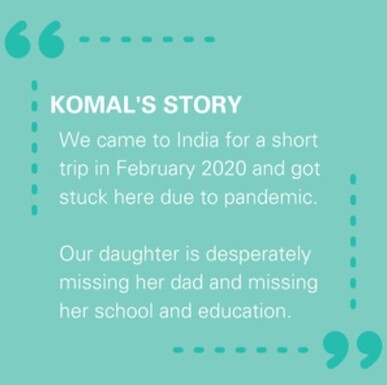 Me and my husband are both Indians but were residing in Finland since 5 years with A type residence permit. We came to India for a short trip in February 2020 and got stuck here due to pandemic. My husband managed to return to Finland in May 2020 but me and my daughter’s residence permits expired so we could not return. We are desperately waiting for the embassy in India to reopen visa services so that we can reunite with my husband. Our daughter is desperately missing her dad and missing her school and education. Noel's story 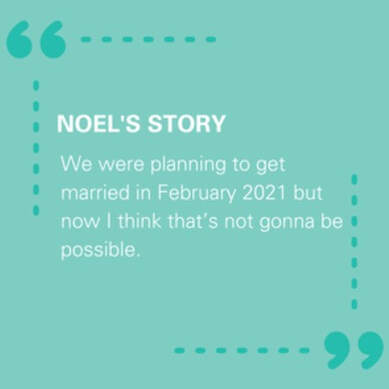 My fiancé lives in Lebanon and it’s getting tough to get him a visa since the visa center in Beirut is closed. I found out that in Turkey they’re partially open but I’ve been calling them and they haven’t answered. We are planning to see each other in Istanbul next month but not sure if we will be able to get there, if there will be flights. Now I’m trying to get him a visa to come to Finland in December. We were planning to meet many times during spring and summer but because of the restrictions, everything was always canceled. We were planning to get married in February 2021 but now I think that’s not gonna be possible. Celine's story 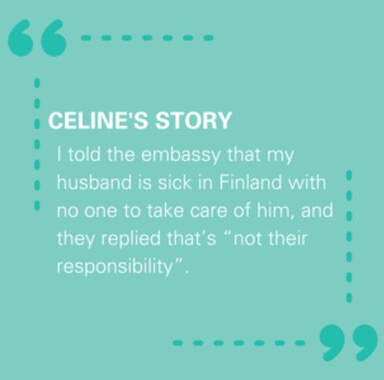 I’m an Indian citizen. My husband and I have been separated since June 2020. He is new to Finland and has a A type resident permit. He is alone and finding it difficult mentally to manage alone. He also got severely sick and has no one to take care of him. I contacted the Finnish Embassy in New Delhi several times, more than 10 calls since June. Their response every time was that they can’t provide any type of visas or travel documents unless Finland lifts its travel/visa ban. Once I called Chennai consulate. They said that our personal relationship doesn’t matter. They only do what the government decides. I told the embassy that my husband is sick in Finland with no one to take care of him, and they replied that’s “not their responsibility”. How cruel... Being separated too long affects us both physically and mentally. Please help. What’s the point of declaring family reasons as “essential travel” if they don’t give us visas to enable us to travel? Is it so much fun for the authorities to see the struggle of separated couples?
Joissakin tapauksissa ulkomaalainen puoliso on saattanut juuttua kauttakulkumaahan matkustusrajoitusten vuoksi. Prosessin venyminen lisää kuluja hakijoille. Suomessa oleskelulupaa odottavalle se pitkittää aikaa ilman työnteko-oikeutta.
Ulkomailla olevalle matkat Suomen edustustoon, joita saatetaan vaatia useita, tarkoittavat kuluja ja lisäävät riskiä koronaan sairastumiseen. Joku on voinut myydä jo kaiken omaisuutensa ja jättää entisen taakseen valmistautuessaan muuttamaan Suomeen, varsinkin jos kaikki perusteet oleskeluluvalle täyttyvät ja prosessin on ajateltu etenevän nopeasti. Ongelmia pandemian vuoksi on ollut Suomessakin. Oleskelulupaprosessin vaatima tunnistautuminen eli henkilökohtainen käynti Maahanmuuttoviraston toimipisteessä on tänä vuonna vaikeutunut, ajanvaraus on ruuhkautunut ja hidastanut prosessia. Käyntiaikoja Migriin yritettiin jopa kaupitella verkossa muutama kuukausi sitten. Tarvitsemme joustavampia käytäntöjä lähetystöiltä ulkomailla sekä Suomessa Maahanmuuttovirastolta, jotta oleskelulupaprosessin vaatimat tunnistautumiset voidaan hoitaa viivytyksettä ja ihmiset pääsevät prosesseissaan eteenpäin ja päätöksiä saadaan kohtuullisessa ajassa. Hallittu perhesideperusteinen maahanmuutto on Suomen etu, mikäli maahan muuttavan kotoutuminen käynnistyy tehokkaasti ja mahdollistaa nopean siirtymisen aktiiviseksi yhteiskunnan jäseneksi. Anu Kytömäki ja Sanna Rummakko Rinnallasi –hanke Familia Ry. We decided to move back home after our son was born. I couldn't wait to be back in Helsinki closer to my mother and relatives. I knew we were doing the right move especially due to the fact that my kids would be in much better schools. Little did I think of my husband, my Bahraini husband, who has only ever just visited Finland for the holidays that were filled with fun, excitement and free of worry. Those visits that every relative and friend of mine tries to meet us before we would leave again. Finland was an exciting, fun and very friendly place he always thought. My husband was raised in a huge family. He, his six brothers and all 40+ cousins were constantly together. His parents were always available for support and advice, and so were his elder brothers, aunts, uncles and even his cousins. No one was left behind without all the support, to help them up again on their feet. "During the most difficult days, I remind myself of what my mother taught me; don't give up, always believe after every fall there is a rise. When you reach the bottom, there is only one way left to go, up." - Ali Dadi I moved to Finland sometime before my husband as to get an apartment and so our elder daughter would start school. When my husband moved, he was so happy to know he could spend six months with our baby boy before he would turn three and join the education system. My husband expressed his amazement, for a country to give such an opportunity, being able to reconnect and close the distance that grew between him and his son whom he had missed while he was away. Soon our son was at day care, my husband was placed with an unsuitable group by the Employment Office (TE-toimisto) and he started drifting away in front of my eyes. He was absent minded, tried to join conversations but was too sensitive to talk about anything, and turned from a healthy race driver into a very poor shape. He was a walking dead man who looked like my husband. I was never so worried as I was then. 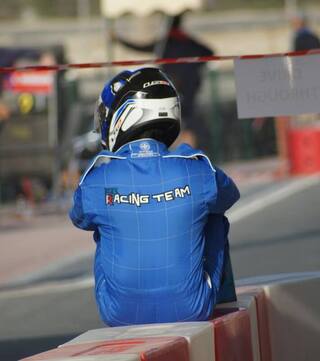 Before summer he managed to find a suitable integration study program and convinced the Employment Office to let him take a part in it. Suddenly he was with similarly educated people from all around the world. He started to get out of that scary place. He was also called for few races in Morocco, France, Italy, Dubai and Oman, so he got to see his racing buddies. By mid-summer my old husband was back and we were able to talk at last. He tried explaining the feelings he had. He started crying and explaining that he is so disappointed in himself for being so weak. That was the moment that it hit me, how many men are raised up to think that feeling is weak. My beloved husband needed to know he was the most amazing man but he is a human being too. He never realized that he had the right to look at his own feelings, his own happiness and well being. And that does not make him any less manly nor weak. We discussed and he agreed that he might need help before next winter. As a Finn who has lived most of my life outside of Finland I did not know other than the healthcare centre to seek help for him. "The most difficult thing for me was, that I did not know how long will this take, but I did know it has to end sooner or later." - Ali Dadi My husband was raised in a psychologically smart family, so he never needed a professional psychologist's help. When his friend died in a burning race car in front of his eyes, he found all the support he needed to bounce back from that trauma. When my husband was stuck under a car and burned 2/3 of his back, his family's support helped him through that too. He always had help naturally, spoke of his pain and was supported with no fancy disorders names that physiologists give. He did not even know what depression really was. Until that winter in Finland.  He entered the doctor's room. He said: “I suffered from depression last winter, and now as winter is approaching, I want to prevent falling back to the same depression again. All I need is a counsellor to talk to because I feel lonely, and I feel that I have no one on my side.“ To which the doctor replied: “You can't know what you need, if you had depression and are talking about it, it means it was a very mild one and so I can describe you something you take if you feel depressed next time.” My husband refused the medication and came home to tell me what happened. He felt attacked when his psychological intelligence was disrespected. We diced to try to find other ways to find him help. We got to the GYM together, I listened to him whenever he needed to talk, and we tried to survive that winter together. He did face difficulties, but it was much better than the winter before. Before the end of the winter we attended Mental Health First Aid (MHFA) training course. That course proved to him how psychologically educated, smart and aware he was naturally. He was one of the strongest people in understanding that course. Everyone saw it and praised his intelligence. "All I need is a counsellor to talk to because I feel lonely, and I feel that I have no one on my side.“ - Ali Dadi Now as a wife, I have to stand and shout as loud as I can "Men's mental wellbeing matters too". I see communities so busy caring about the children's mental wellbeing and the mothers' mental wellbeing and divorced women's mental wellbeing but rarely have I heard of men's, they do exist but rarely heard of and when needed we didn't know how to find them. Don't get me wrong, I think everyone's mental wellbeing is important, but we should not forget the men. Men have been taught to be strong, not cry, work hard, not complain and many have been taught to not get weak and ask for psychological assistance. We have to change this stereotyping. We have to embrace men as human beings, not as robots programed to keep it together and fix every broken thing at home. Because sometimes it's him who needs helping to fix something broken, and there is no shame to allow him to ask for that help. "I was never ready to give up my love to this amazing man, so I knew we had to find away through this!" From the experience I learned to listen to him instead of only talking and asking him to listen to me. I learned how to be patient and give him time to figure out the feeling he is going though. And learned how to read his need of a hug or a touch when he needed that too. He moved to Finland for me and for our children so this is the least I could give him in return, be there for him. My husband is all good, and almost got used to the Finnish style of life, and he made few friends, which helped him a lot. But I wish we knew about the peer support groups that are offered. I found out about father's group that gather in Familia ry for years, just few weeks ago. That would have been just what he needed in those lonely dark days. "We have taken this decision to walk through life together, so we have to always remember to wait for the other one and hold hands on the rough surfaces." Men's mental wellbeing matters too.
Nora Dadi
Imagine being asked, What is being heard? "Mitä kuuluu!" And the response, Good. “ Hyvää, Kiitos.” Thank you. But the question, “Mitä kuuluu?” is “What hears?” literally. "Entä sinä?" And, you? "Ihaan hyvää, kiitos." Yes, perfectly well, thank you. Like saying, one hears good things. Except, that they are not responding about the functionings of their auditory senses, but, they are telling you that they are doing well. Which is what they asked you about in the first place… “Mitä kuuluu?” Do you hear well, What is being heard?
Also, in the olden days, when calculators helped people do their math, a calculator was also called an aasin silta. Maybe, just maybe, because the user could not make the connections between those unrelated numbers? It is nice to see how they use English words and add an “i” to the end of some words to make it their own. So, logically, hotel is hotelli, bus is bussi, and so on. But, you can’t extrapolate a word and think you know the meaning, especially when “porkanna” is not pork but the humble carrot. How about trying to say kaHvi for coffee (make sure you aspirate the “h”, tough one ain’t it?) and then having to say kofeiniton when you want caffeine-free? The suffix “ton” meaning “without”. That ton of logic beats me. Why not simply say “koffii” instead of making poor English speakers gasp for air while struggling to get the “h” aspirated. It does not help either, that the word for the pope is not aspirated and is just a long paavi. One has to pronounce the “aa” diphthong. If one doesn’t, there is not much else to distinguish it from its less-worthy cousin, the word for cardboard, pahvi. And listeners be-warned, especially, if I have not done my breathing-out exercises. "Yeah, I have the vain glory of being the one to make people think I am making pontifical statements, when all I was referring to, was some poor piece of cardboard that was in the rubbish bin!"  Picture Photo by amirali mirhashemian on Unsplash Picture Photo by amirali mirhashemian on Unsplash Or, how about going into a burger joint and being greeted with Tuuna burgerisi?.. which I quite innocently thought meant “D’ya want a tuna burger?” Only to realize it was their clever usage of English, though not in the way you’d imagine. And, so my days in this land are days of discovery and laughter. There is always something that can “Tul-la pus-kis-ta.” Something can come out of the bushes, a surprise that can get sprung on you. Just like when I did a double-take — when I was told that what I had proposed -- fitted like a fist in the eye! I thought they meant that I had given them a sock in the eye! Seems, I could relax after all. All it harmlessly meant was that the proposal suited them perfectly. And that is perhaps, how I came to be with my Finnish man. Yes, the proposal suited me fine, just like a fist in the eye, sopia kuin nyrkki silmään. Mary Ann Alexander Published in Duo blog with Mary Ann´s permission First published in Mary Ann´s personal blog
Myös yksilötasolla koronapandemian vaikutukset ovat olleet mittavia, maailma ympärillämme on muuttunut pysyvästi. Sanotaan, että oman osaamisensa kehittäminen on parasta sosiaaliturvaa, tämän olemme kouriintuntuvasti saaneet kokea myös viimeisen puolen vuoden aikana. Käynnissä oleva työn murros koskettaa jokaista suomalaista tavalla tai toisella. Työ ei lopu, mutta se muuttaa muotoaan. Uudenlainen työ vaatii uudenlaista osaamista, perinteinen polku opinnoista työelämään ja lopulta eläkkeelle on rapistumassa ja sen tilalle on noussut ajatus jatkuvasta oppimisesta ja aktiivisesta osallistumisesta läpi koko elämän. Tulevaisuudessa paras osaaminen voittaa, tästä syystä osaamistason nostaminen on tärkeää niin kilpailukyvyn kuin myös sosiaalisen inkluusion näkökulmasta. Työn murrokseen ei vastata ainoastaan lapsia ja nuoria kouluttamalla. Oppimisen on oltava jatkuvaa. Jokaisen kansalaisen on saatava mahdollisuus taitojensa ja osaamisensa kehittämiseen koko elämän ajan.
Myös ihmisen oma vastuu omasta osaamisesta kasvaa. Opiskelu siirtyy lapsuudesta ja nuoruudesta tasaisemmin koko elämän varrelle. Tarvitaan entistä parempia oppimisen taitoja. Tärkeintä on kyky oppia joustavasti uutta, myös töiden ohessa ja aikana. Työelämän ja työtehtävien muutoksia tai uudenlaisten työpaikkojen syntymistä on vaikea ennakoida täsmällisesti, mahdotonta on myös tietää kuinka kauan maailmanlaajuinen pandemia kestää tai tuleeko myöhemmin tilalle uusi epidemia. Suurissa muutoksissa tarvitaan motivaatiota ja innostusta uusien taitojen ja jopa uuden ammatin hankkimiseen, sekä joustavuutta ja kykyä sietää epävarmuutta. Yläasteikäisen poikani opettaja antoi tänä syksynä lapsille ikimuistoisen lahjan, hän kehotti lapsia tavoittelemaan viisautta. Hän kirjoitti myös meille vanhemmille kirjeen, jota tässä siteeraan. ”Tänä vuonna tulee kuluneeksi 150 vuotta Suomen kansalliskirjailija Aleksis Kiven pääteoksen Seitsemän veljestä julkaisusta. Heti kirjan alussa veljekset kohtaavat elämän realiteetit: ilman lukutaitoa on turha havitella avioliittoa, joten veljekset lähtevät lukkarin luo lukutaitoa hankkimaan. Veljesten haluttomuus paneutua opiskeluun ajaa heidät pakenemaan Impivaaraan, jossa he voivat elää ilman yhteisön ja yhteiskunnan asettamia odotuksia ja määräyksiä. Vetäytyminen yhteiskunnan ulkopuolelle ei kuitenkaan tarjoa ratkaisua onnelliseen elämään vaan eristäytyminen osoittautuu lopulta mahdottomaksi. Seitsemän veljeksen Timo on ehkä veljeksistä yksinkertaisin, mutta hän antaa hyvän ja vaativan ohjeen elämään: ”Ihmisen pitäisi aina oleman viisas.” Timo asettaa meille ehdottomuudessaan lähes mahdottoman tavoitteen, mutta tavoitteiden tuleekin olla korkealla.” Näiden sanojen myötä tahtoisin kannustaa meitä jokaista jatkuvan oppimisen ja itsensä kehittämisen tielle. Nähdään maailmanlaajuinen haaste mahdollisuutena parantaa omaa ja yhteiskuntamme osaamista. Oppiminen on elämänmittainen matka! Johanna Koponen Kirjoittaja toimii erityisasiantuntijana ulkoasiainhallinnon palveluksessa ja on nelihenkisen monikulttuurisen perheen äiti. |
blogi - blogAjatuksia ja kokemuksia elämästä kahden kulttuurin keskellä.
Reflections and experiences from the life of intercultural families. kategoriat
All
osallistuToivotamme sinut lämpimästi tervetulleeksi osallistumaan blogiyhteisöömme: lue, kommentoi ja kirjoita!
Kirjoittajina voivat toimia kaikki kahden kulttuurin arkea elävät ja aiheesta kiinnostuneet. Kynnystä kirjoittamiselle ei tule nostaa liian korkealle ja kirjoittaa voi joko omalla nimellä tai nimimerkillä. Blogissa esitetyt näkökannat ja mielipiteet ovat kirjoittajien omia, eivätkä edusta Familian kantaa. Kahden kulttuurin arki on itsessään kiinnostavaa ja siitä kirjoittaminen voi avata myös itselle uusia näkökulmia! Blogikirjoituksia voi tarjota sähköpostitse (info@ familiary.fi) tai yhteydenottolomakkeen kautta. Lopullisen valinnan julkaistavista jutuista tekee Familian henkilökunta. Tervetuloa mukaan! participate!We warmly welcome you to participate in our blog community: read, comment, and write!
Anyone who lives and works in the world of intercultural families and is interested in the topic is welcome to contribute. The threshold for writing should not be too high, and you can write either under your own name or under a pseudonym. Keep in mind that the views and opinions expressed in the blog are those of the authors and do not represent the position of Familia. The everyday life of intercultural families is interesting and writing about it can also open new perspectives for you! Your story matters and helps to raise awareness about the opportunities and challenges within intercultural families. Blog contributions can be submitted by e-mail (info@ familiary.fi) or via our contact form. Final selection and edition of the stories to be published will be conducted by our staff. Welcome to join us! |
|
|
© Familia 2024

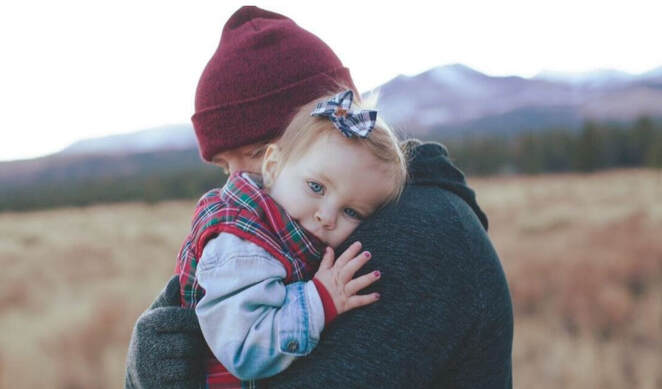

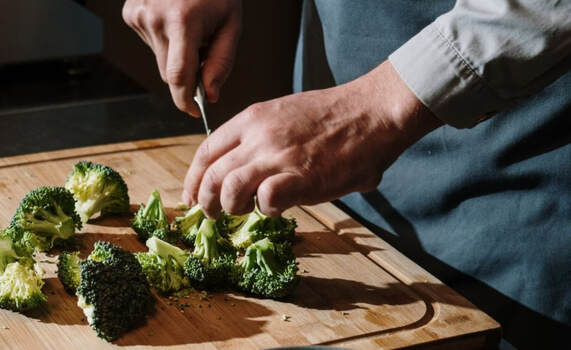
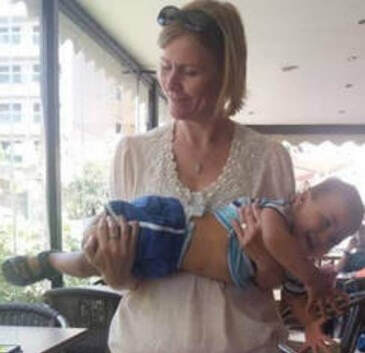

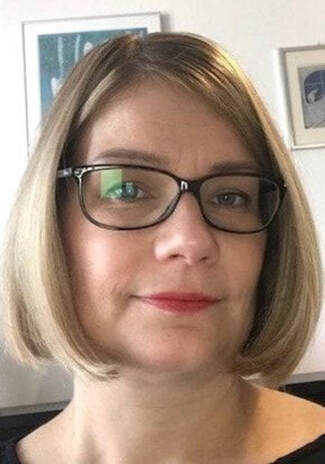
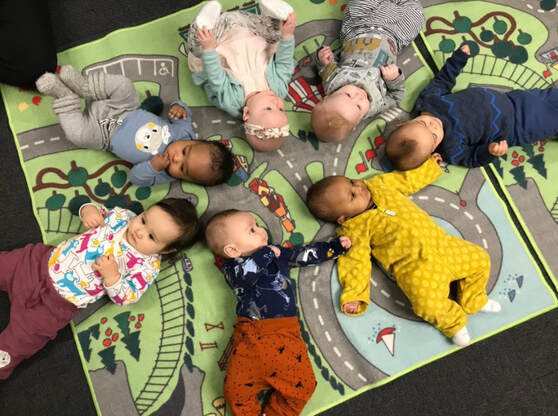
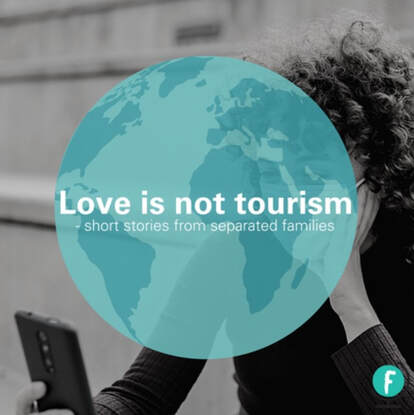
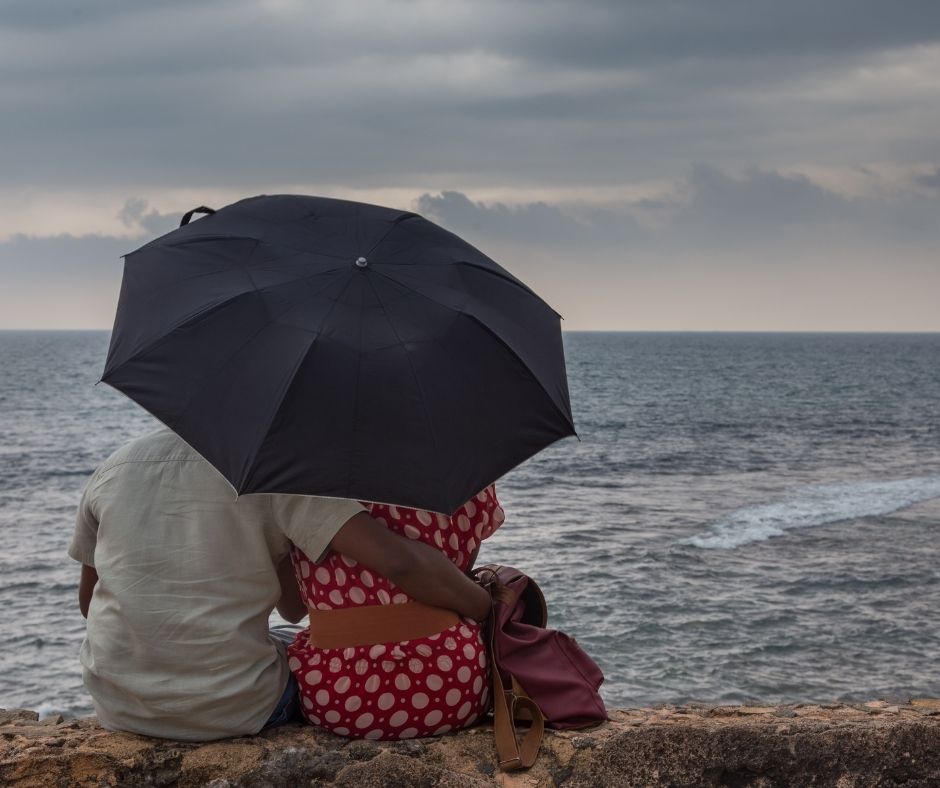
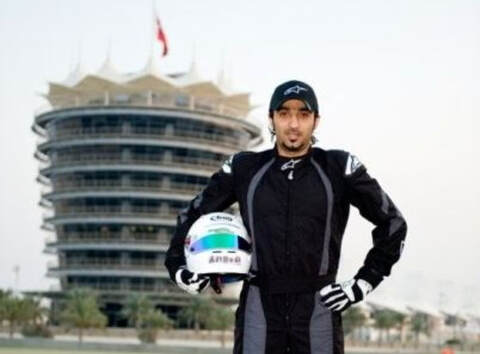



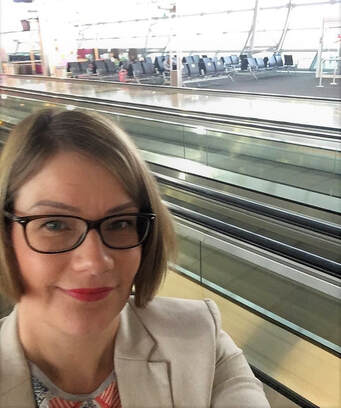
 RSS Feed
RSS Feed

